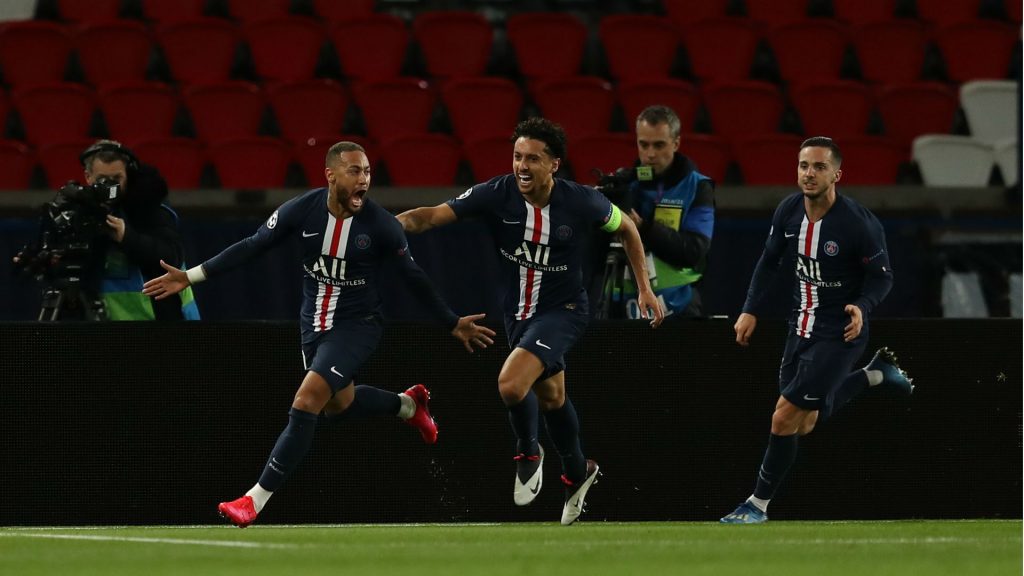Member Insights: Was Sport Too Slow To Act As Coronavirus Pandemic Sweeps The World?
March 16, 2020
The turnstiles are locked, the terraces and hospitality boxes are empty, the pitches, courts, fields and racecourses are deserted…
The suspension of most major sporting events around the world has laid bare the integral role sport plays in the lives of so many millions of people around the world.
It’s not just the athletes, coaching staff and spectators who are affected, of course. Administrators, catering, security, grounds staff, the media and retailers have all been affected, to name but a few.
The threat to livelihoods is immense.
The problem for sport, of course, is that it relies on income from spectators and broadcasters, and the loss of revenue can be the difference between turning a profit or going out of business.
Staff need to be paid, suppliers’ contracts need to be honoured and the wheels that turn the sports economy need to turn, slowly, while the world waits for the coronavirus crisis to abate.
But as the virus went from a regional infection to a global pandemic, did major sporting organisations really do enough to face up to the greatest threat to global health since the Spanish flu pandemic just over a century ago?
The problem for sport, of course, is that it relies on income from spectators and broadcasters, and the loss of revenue can be the difference between turning a profit or going out of business.
It’s no wonder that while some were quick to postpone or cancel their events, others delayed for as long as possible.
But when the World Health Organisation (WHO) confirmed that Covid-19 was now a pandemic, the sight of football teams, for instance, playing European matches in empty stadia, or, worse still, sold out as was the case when Champions League holders Liverpool lost to Atletico Madrid at Anfield last week, seemed nothing short of farcical.
Tedros Adhanom, Director General of the WHO, had already expressed his concern at the spread of the virus.
One thing is certain: the coronavirus has put the sports industry in the most precarious position it’s ever encountered.
“We are deeply concerned both by the alarming levels of spread and severity, and by the alarming levels of inaction,” he said. “We have called every day for countries to take urgent and aggressive action.” While those comments would have been levelled at governments, they apply to sports decision-makers as well.
That urgent action goes beyond the financial ramifications, to the protection of athletes, staff and the general public.
People before profits – that’s the mantra upon which brands and organisations stand or fall.
The delays by many organisations to formally halt events underlines a lack of preparedness for medium to long term competition suspension or cancellation.
It also highlights a lack of leadership from governing bodies who could have acted more swiftly to put the wellbeing of sports staff and spectators above the desire that the show must go on.
They waited until their hands were forced when high profile players, coaches and other staff became infected before they simply had no choice than to swap self-interest with common sense.
How clubs and federations position themselves in society and how they communicate their values that inspire millions to follow them around the world are certainly more important than ever.
One thing is certain: the coronavirus has put the sports industry in the most precarious position it’s ever encountered.
While smaller clubs and organisations could be forgiven for not having robust planning frameworks in place, national and international federations could and should have done more and taken a proactive rather than a reactive stance to the situation.
Some may argue that it isn’t possible to expect sports administrators to have a strategic plan in place to deal with a pandemic or similar existential crisis.
But federations must have procedures in place for when competitions are suspended and now is the time for them to review their commercial activities and their operational protocols.
How clubs and federations position themselves in society and how they communicate their values that inspire millions to follow them around the world are certainly more important than ever.
Yet it is at times such as these that sports leaders must not just be seen to do the right thing, but lead and think beyond their own arena, when there is so much more at stake than to win or lose.
David Alexander is Managing Director of Calacus PR Consultancy that helps sports organisations navigate through a crisis.

